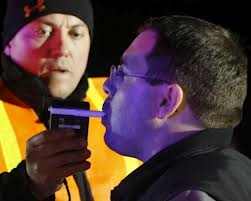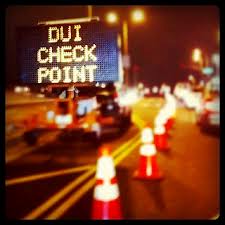If you have been stopped and arrested for a DUI, you may want to consult with an attorney before going to court and plead guilty. Pleading guilty to a DUI can result in not only jail time, substantial fines and alcohol school, but also increased insurance rates and loss of employment resulting from license suspension.
How can an attorney help you in the defense of a DUI? The first thing to look at is what was the reason the officer made contact with you? In legalese, we call this “probable cause”. In order for an officer of the law to stop you, he must have a valid legal reason for pulling you over. If he doesn’t, then the stop is deemed unconstitutional and as a result, the case should be thrown out. If the case is filed by the District Attorney’s office, the remedy is to file a motion for suppression and have the case dismissed that way. Probable cause issues can arise from sobriety checkpoint stops. There are many rules and regulations that govern how checkpoints must be administered and if these rules aren’t followed, the DUI investigative stop could be illegal.
It is common for drivers to be pulled over for simply driving out of a drinking establishment late at night.
That, in and of itself is not probable cause to make a legal detention. There are many other situations in which it is possible that the arresting officer did not have legal cause to stop a vehicle suspected of DUI including not using a blinker when turning (not always necessary to do so) or driving slowly on a freeway (not a problem as long as you are not obstructing traffic). Again, always stay calm and be respectful to the officer even when you feel you have been wronged knowing that you will have your day in court.
What if the stop was justified? What might a defense to a DUI be if the officer had probable cause to stop you and you blow into a machine that reads over .08? Is there anything that can be done to get out of a DUI conviction? Absolutely, and the closer you are to being .08 or under makes your case all the stronger. You see, a DUI conviction can and is usually based on numerous factors including driving pattern, field sobriety tests, the demeanor of the person and most importantly, the chemical test, whether it be a breath test or a blood test. If all of the factors other than the chemical test point to sobriety, and the chemical test shows a blood alcohol content at or even somewhat above the legal limit, it is quite possible that the person was not under the influence nor over the legal limit of .08 blood alcohol.
How is this possible? Well, if the suspect performs well on the balance tests and other field sobriety tests and the reason for the stop was an infraction like speeding or illegal u-turn (no indicia of impairment),then it is possible the person was under .08 at the time of driving, say .05 or .06, and by the time the test was administered say 45 minutes later, the test results show a reading of .08 or even higher. This is because it takes time for ingested alcohol to make its way through the body and into the bloodstream. Because of this, if you drink a couple beers or glasses of wine in a short period of time and 15 minutes later are stopped by a police officer your blood alcohol is still rising while the officer is administering the tests. By the time he gets around to having your blood drawn, the tested result can be twice as high as what you were at the time of driving. This is established forensics and is precisely why the police officer asks how much you had to drink and what time you started and what time you stopped. They want to know if your blood alcohol level was increasing, decreasing or was near or at peak when they pulled you over. There are other factors that also come into play such as when you last ate. A stomach full of food will usually slow the process of alcohol consumption and thereby render a test taken one hour after driving double what it was when you were stopped. Rising blood alcohol can be a viable defense not only in court but also in a DMV hearing.
What are some of the other defenses to driving under the influence? There are many technical issues that can be asserted that have to do with the handling of blood such as chain of custody and spoliation. Defense is always entitled to discover calibration logs and maintenance records on every DUI case. Often times, especially if CHP made the stop, there are audio and visual recordings made. These mobile audio and visual recordings, “MVARS”, can be helpful in either supporting or contradicting the officers narrative of alleged impaired driving and/or performance on field sobriety tests.
In summary, there are many ways to fight a charge of driving under the influence. It is always best to consult a professional about your case and we can help you retain the services of an affordable DUI attorney.

